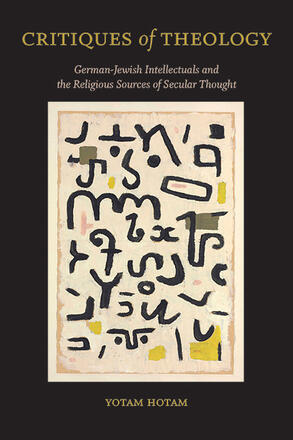
Critiques of Theology
German-Jewish Intellectuals and the Religious Sources of Secular Thought
Alternative formats available from:
Argues that the modern practice of critique emerged out of religious traditions and can in many ways be traced back to them.
Description
It seems hard to imagine a concept more significant to modern thought than critique. Critique involved distancing oneself from religious explanations and theological argumentation and came to represent the essence of secular consciousness's potential to deliver modernity's promise of human progress through rational inquiry and scientific development. Critiques of Theology debunks this common understanding. Based on a novel reading of previously less-discussed writings by Sigmund Freud, Walter Benjamin, Theodor Adorno, and Hannah Arendt, the book shows how the practice of critique emerged out of religious traditions and can, in many ways, be traced back to them. This study points to a persistent misreading of critique and demonstrates that it does not come from outside of religion to build a new world of ideas; on the contrary, it redeploys those already present within its theological constellations.
Yotam Hotam is Senior Lecturer in the Faculty of Education at the University of Haifa. He is the author of Modern Gnosis and Zionism: The Crisis of Culture, Life Philosophy and Jewish National Thought and the editor (with Philip Wexler) of New Social Foundations for Education: Education in 'Post Secular' Society.
Reviews
"Critiques of Theology contributes profoundly to our understanding of what critique actually is, transcending the disciplinary categories of 'religious studies,' 'theology,' or 'theory.' Pathbreaking within these fields, Critiques is also essential reading for philosophers, political theorists, literary critics, intellectual historians, sociologists, and theorists of every school." — Kirk Wetters, Yale University